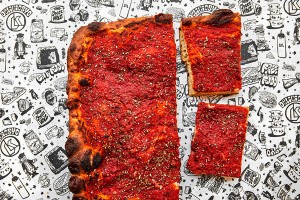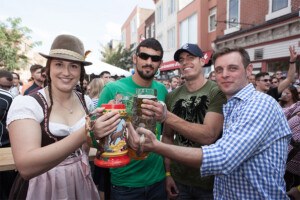Philly’s Burger Boom: Why Chefs Are Elevating the American Classic
From bone marrow to Taleggio cheese, Philly's fancy burgers serve up common ground on a bun.
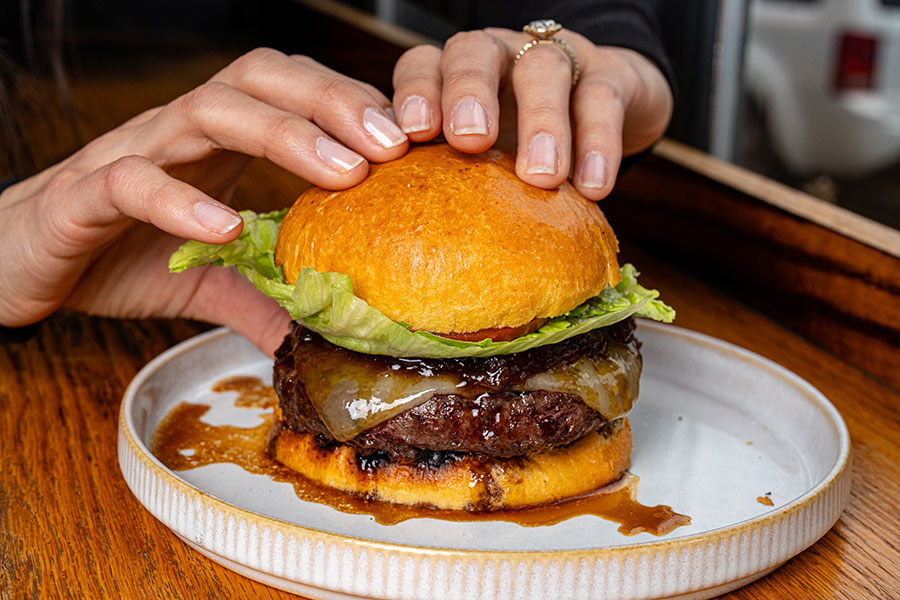
The burger at Ember & Ash / Photograph by Mike Prince
Burgers are having a moment in Philly. And we’re not just talking about your average fast-food fare. As the city’s dining scene shifts toward refined tasting menus, haute cuisine, and effortlessly cool upscale joints, elevated takes on the all-American classic are popping up everywhere.
Fancy, artisan burgers are not new. Eli Collin’s dijonnaise-slathered version at a.kitchen, the dry-aged triumph oozing with raclette at Fork, and Randy Rucker’s beloved Mother Rucker at River Twice have been destination dishes we’ve gushed about for years. They are, however, increasing in number, appearing in unexpected places, and taking on new forms that are redefining the genre as chefs tap into their approachable, nostalgic, universal appeal.
“One of the cool things about this proliferation of burgers is that it’s sort of a lens to filter your own cuisine and culinary vision through this really familiar dish,” says Tyler Akin, the owner and chef behind Fishtown’s new Corsican-inspired restaurant, Bastia, and the adjacent piano lounge, Caletta. Though his burger — a dry-aged blend of brisket and short rib topped with fontina, piparra tapenade, caramelized onions, and a balsamic aioli — has more Italian flavors, it does capture the nuanced cultural exchange of Corsican cuisine, which pulls from both French and Italian influences.
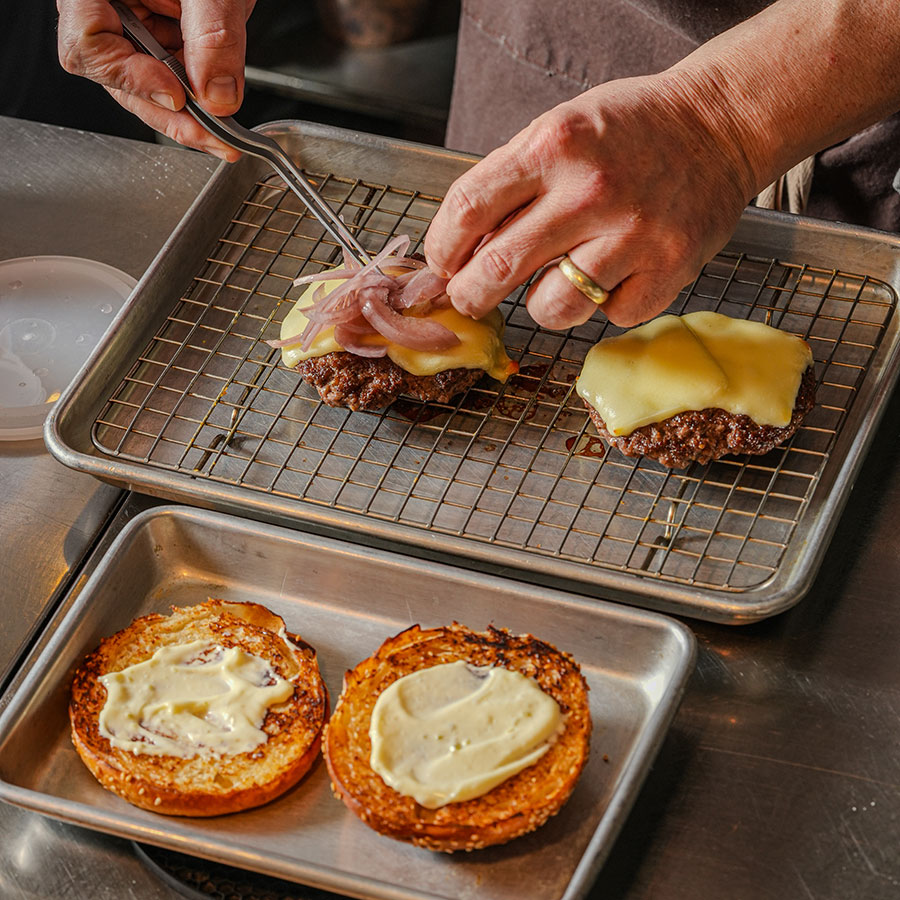
Randy Rucker building his Mother Rucker burger at River Twice / Photograph by Mike Prince
Many Philly chefs are using burgers as a kind of Rosetta stone to translate their overall restaurant concepts. Wilder, which serves sophisticated versions of casual favorites, tops theirs with pungent, semi-soft Taleggio cheese and earthy maitake mushrooms. The pimento cheese on the burger at Rex at the Royal captures the restaurant’s southern charm. Alongside yellowfin pastrami and scallops and merguez on the menu at Jaffa, there’s a green chile version people are raving about. Southgate‘s Korean-style bulgogi beef patty is topped with cabbage slaw, pickled daikon, katsu sauce, and Kewpie mayo. Lacroix’s lunchtime masterpiece is covered in bone marrow, caramelized onion, and Comté cheese. Even Kampar has a Malaysian-style burger, enveloped in a crepe-like omelette that I would have noticed during my last three visits had I not been distracted by the nasi lemak and beef rendang. (I look forward to trying Kampar’s burger when they reopen.)

Lacroix’s burger / Photograph by Mike Prince
These premium patties — made with high-quality, locally sourced, house-made ingredients — do come at a justifiably higher cost. We analyzed the rise in prices in depth a few years ago with a cost breakdown of Southwark’s blue cheese-topped beauty. Even though they can run upwards of $25, the higher prices don’t seem to deter diners. In fact, some Philly chefs say offering a burger can bring in new customers who want to try something new, but in an approachable way.
“Having a burger on a menu is a way to attract a wider range of diners to the restaurant,” says Dane Demarco, chef and owner of Gass & Main in Haddonfield. “It’s always a solid choice, and sometimes a safe choice for some people who may be less exploratory when they dine out.” They’ve been in the game for a while, slinging patties at American Sardine Bar, Second District Brewing, and South Philadelphia Taproom before opening Burgertime, Demarco’s ode to pure American excess where Doritos– and macaroni salad-topped monoliths pushed the limits of our greatest burger expectations.
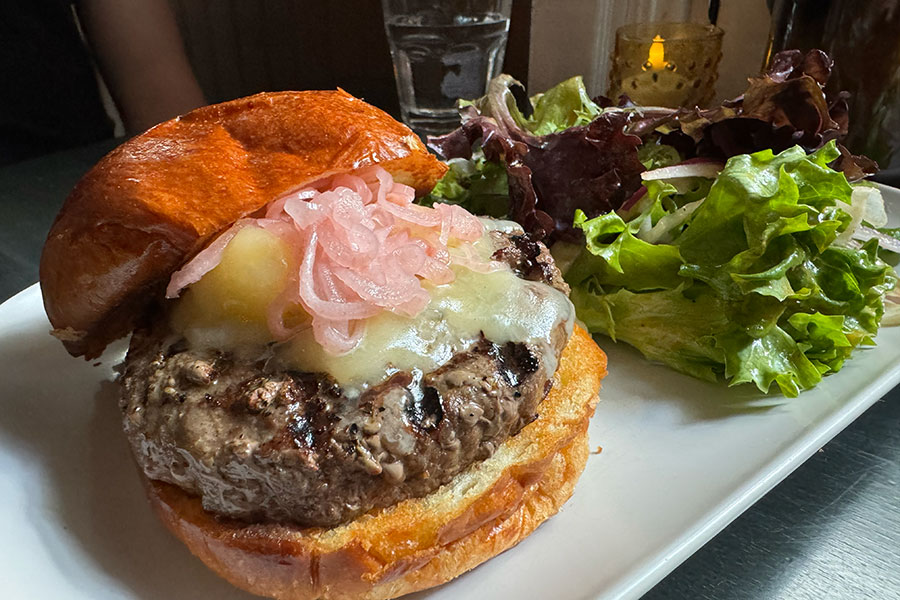
Gass & Main’s burger / Photograph by Kae Lani Palmisano
When they opened Gass & Main, their upscale restaurant celebrating American suburban home cooking, the burger became a cornerstone of the menu. If roe-topped deviled eggs and wild boar meatloaf aren’t your style, you can still get a taste of Demarco’s local, sustainable, seasonal vision with a burger made with beef from Rineer Family Farms, bacon jam, aged cheddar cheese, and pickled shallots stacked on a bun from Baker Street.
At Ember & Ash on East Passyunk, adding a burger to the menu was pivotal to its recent rebrand. Co-owner and chef Scott Calhoun explains that his “snout-to-root” concept of using beef tongue to make carpaccio and transforming beet tops into salads didn’t catch on as he had hoped. “We were more or less cooking for ourselves and cooking the style of food that we wanted, but not what the neighborhood wanted,” he says, admitting that using less commonly used offal and ingredients that would normally be considered kitchen waste was unfamiliar territory for his East Passyunk neighbors. He has since moved away from his original concept, focusing on gastropub fare. “As we move into this next phase with a heavy focus on gastropub food, items like our burger and steak frites will be front and center,” says Calhoun.
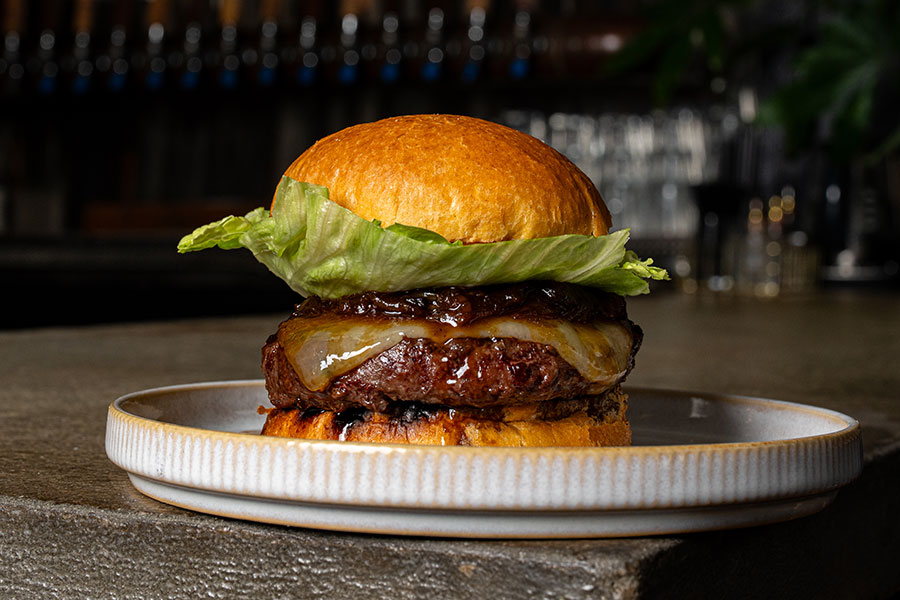
Ember & Ash’s burger on the bar / Photograph by Mike Prince
Ember & Ash’s burger is made from a blend of ribeye trim, local wagyu from Jericho Mountain Beef, and trim from their hanger steaks. The beefy triple threat is cooked over charcoal and topped with caramelized onions, Gruyère cheese, a thin smear of Dijon mustard, a tomato, and iceberg lettuce for the crunch. Between the new concept, the restaurant’s custom-built grill, and the large bar, Calhoun says it only made sense to have a burger on the menu.
“It’s a common ground for all diners,” says Alexandra Holt, chef and owner of Roxanne in Queen Village. Her avant-garde, satirist approach to fine dining, which sometimes features cakes with crying faces and a raw cheesesteak that looks like a sunny side up egg, has earned her the reputation as a “weird outlier” in the Philly dining scene. But alongside her unapologetic social commentary and unique sense of humor, she serves an eight-ounce, steakhouse-style burger served medium-rare with Red Rock cheese and raw onions on a house-made sesame seed bun — a little less intimidating of a choice than, say, the Eve’s Apple. “A burger is a more straightforward way of saying to people that you should not be afraid to come here — we still make burgers.”

